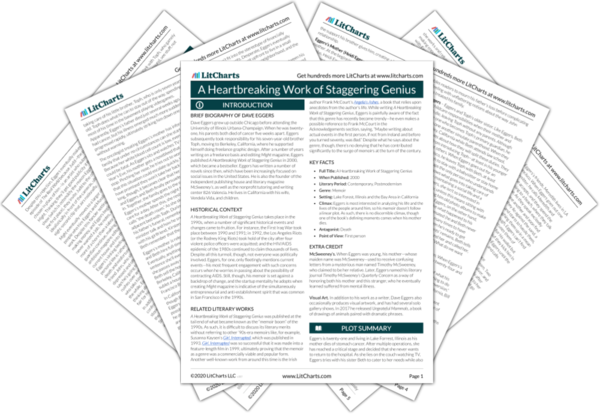Again readers see the difficult position Eggers is in as caretaker for both his mother and Toph. What’s notable, though, is that he calls upon Toph to be independent. He doesn’t pamper his little brother, but instead urges him to figure out dinner for himself. This is not a very parental move, but rather the kind of thing an older brother would do. This makes sense, of course, since Eggers
is Toph’s older brother. Nonetheless, this method of caretaking is worth keeping in mind, as it foreshadows the relationship that Eggers eventually builds with Toph when they are on their own.
